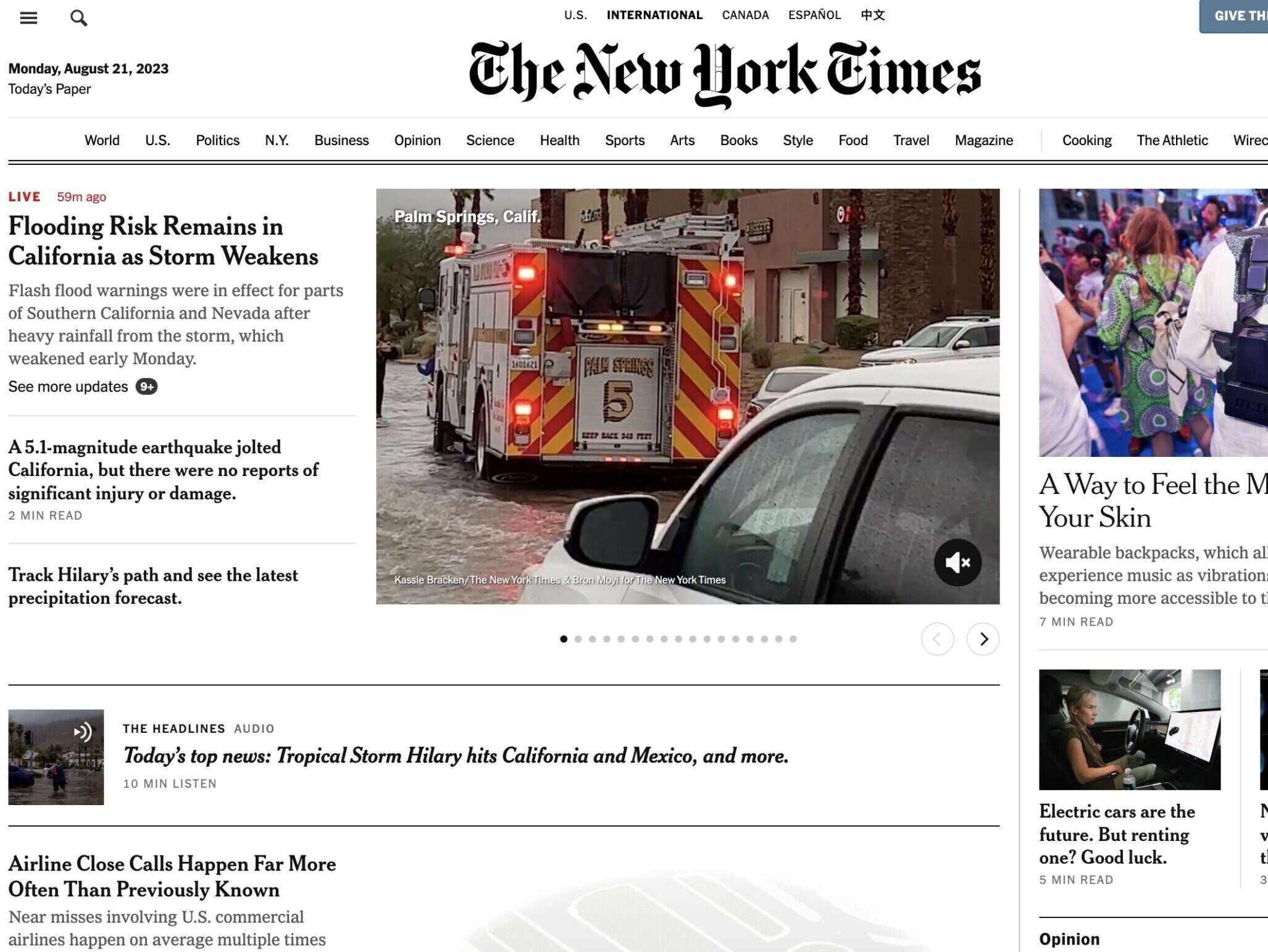News Websites Things To Know Before You Buy
News Websites Things To Know Before You Buy
Blog Article
The 6-Minute Rule for News Websites
Table of ContentsNews Websites Fundamentals ExplainedSome Known Details About News Websites The Of News WebsitesNews Websites Can Be Fun For EveryoneThe 10-Second Trick For News Websites
It was down in the UK and Brazil however up some various other countries, such as Greece, Bulgaria, and Poland (News Websites). This year, for the very first time, we asked regarding the different manner ins which people stay clear of the information and found that around half of avoiders (53%) were trying to do so in a broad-brush or routine way as an example, by switching off the radio when the news began, or by scrolling past the information in social networkse.g. scrolling previous information, altering channels when information begins. of avoiders inspect sources less commonly. e.g. restriction to specific times of day, switching off alerts, etc. of avoiders prevent some subjects. e.g. topics that bring down state of mind or boost anxiety. You claimed that you attempt to proactively prevent news.

I'm most likely selecting to learn more light-hearted tales than I made use of to presently. M, 51, UK Turning my back on news is the only way I feel I can cope often. I have to purposely make the effort to avert for my very own psychological wellness.
A Biased View of News Websites
Selective evasion of Ukraine news was greatest in a lot of the nations closest to the dispute, enhancing findings from our additional survey last year, right after the battle had begun. Our data might not recommend a lack of passion in Ukraine from nearby countries yet instead a need to handle time or secure mental health and wellness from the extremely genuine horrors of war.
Contrasting Finland with a politically polarised nation such as the USA (see following chart) that is less influenced by the battle, we locate a really various pattern of subject evasion. In the United States, we locate that consumers are much more most likely to stay clear of subjects such as national politics and social justice, where debates over problems such as gender, sexuality, and race have come to be highly politicised.
American national politics are pretty hazardous these days. I discover sometimes that I have to separate from tales that just make me upset. F, 61, USA For some people, bitter and dissentious political arguments are a reason to switch off information completely, however, for some political partisans, avoidance is commonly about shutting out viewpoints you do not want to hear.

How News Websites can Save You Time, Stress, and Money.
Some are wanting to make news more easily accessible for hard-to-reach groups, expanding the information agenda, appointing more inspiring or favorable news, or embracing useful or options journalism that give people a sense of hope or personal agency. In our study this year, we asked respondents about their interest in these different approaches.
This clarifies why tales like Ukraine or nationwide politics carry out well with information regulars but can at the same time turn less interested users away (News Websites). Careful avoiders are go much less thinking about all kinds of information than non-avoiders yet in family member terms they do appear to be much more interested in favorable or solutions-based news

Fascination About News Websites
2023). This may be true in the minute, however in time it seems to be leaving many people vacant and less pleased, which may be threatening our connection with and rely on the news. Across markets, general rely on information (40%) and count on in the resources individuals use themselves (46%) are down by an even more 2 percent points this year.
Without a doubt, with the rear-view mirror, the COVID-19 trust fund bump is clearly noticeable in the adhering to chart, though the instructions of traveling later on has actually been mixed. In many cases (e.g. Finland), the count on rise has been click resources kept, while in others the upturn looks more like a spot in a tale of continued lasting decline.
A few of the greatest reported degrees of media objection are found in countries with highest levels of suspect, such as Greece, the Philippines, the USA, France, and the UK. The most affordable levels learn the facts here now of media criticism frequent those with higher degrees of count on, such as Finland, Norway, Denmark, and Japan.
What Does News Websites Mean?
This year we asked participants regarding their choices for message, sound and video when taking in news online. Typically, we discover that the bulk still favor to review the information (57%), instead of watch (30%) or pay attention to it (13%), however younger individuals (under-35s) are a lot more likely to pay attention (17%) than older groups.
Behind the standards we find substantial and shocking nation distinctions. In markets with a solid reading tradition, such as Finland and the United Kingdom, around 8 in 10 still prefer to check out on-line information, but in India and Thailand, around four in 10 (40%) say they like to watch information online, and in the Philippines that percentage is over half (52%).
Report this page